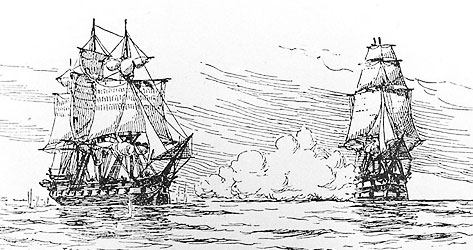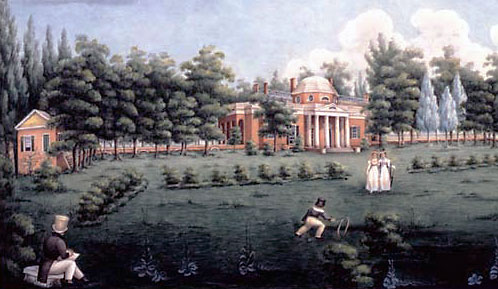Embargo Act
The British and the French were already at war with one another. To add to the situation, American ships trading with the British were being harassed by the French, while American ships trading with the French were being harassed by the British. Then in 1807, a British ship, the Leopard, attacked an American ship, the U.S.S. Chesapeake.
|
|
 |
President Jefferson responded with what he believed to be the best course of action, an economic embargo, or a restriction on trade. In 1807, Congress passed the Embargo Act, in which almost all trade with foreign nations was outlawed. Jefferson believed that instead of using force, an embargo would serve as a punishment to the European nations. He also did not believe that the United States’ navy could withstand a war against the Europeans.

The embargo ended up hurting Americans who relied on trade with European countries as a means of livelihood. The Embargo Act put a huge strain on Jefferson’s second term in office. Despite his flawed reputation, before retiring to his home in Monticello, Jefferson was able to see the election of his Secretary of State, James Madison, in 1808.
